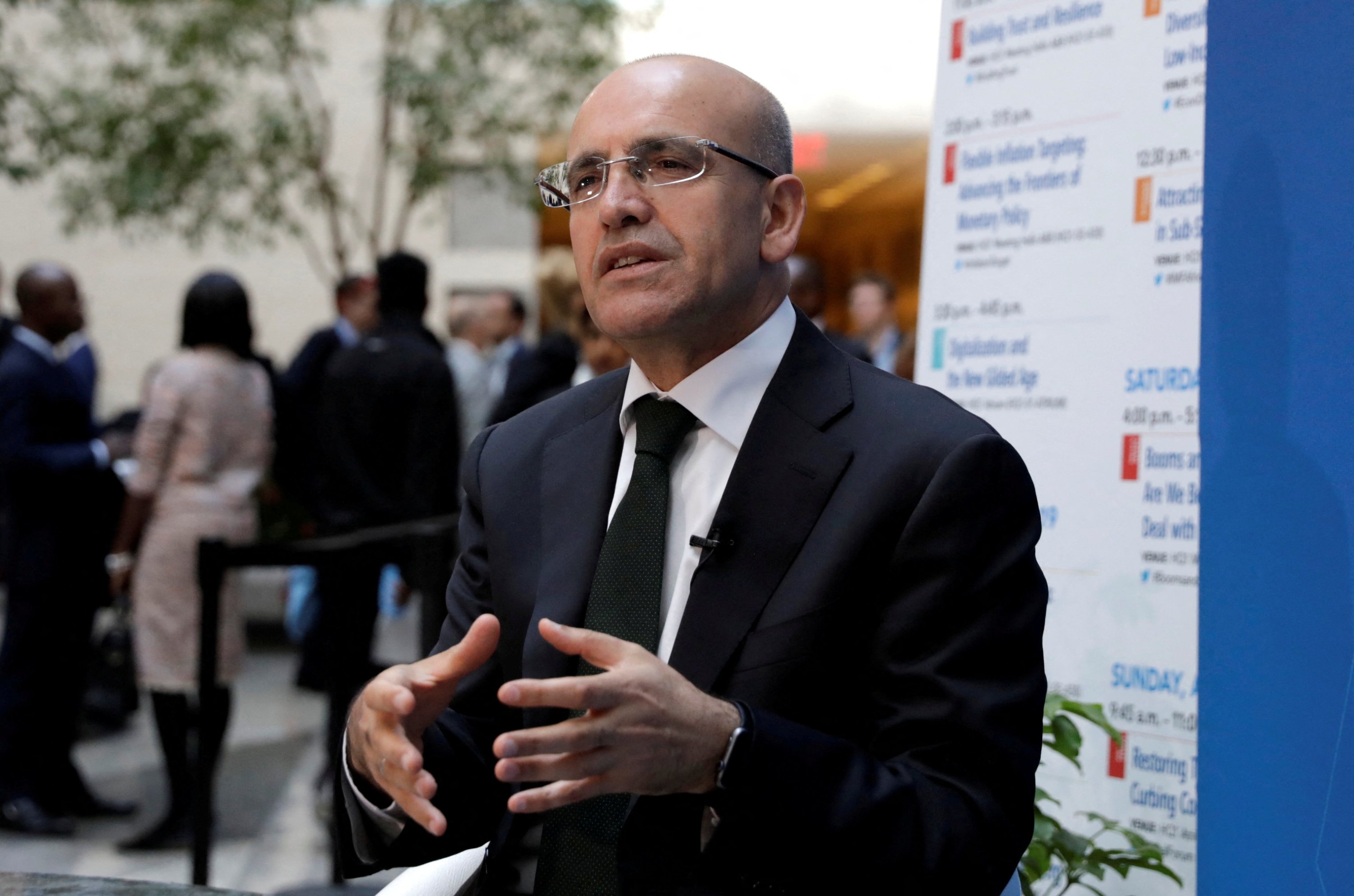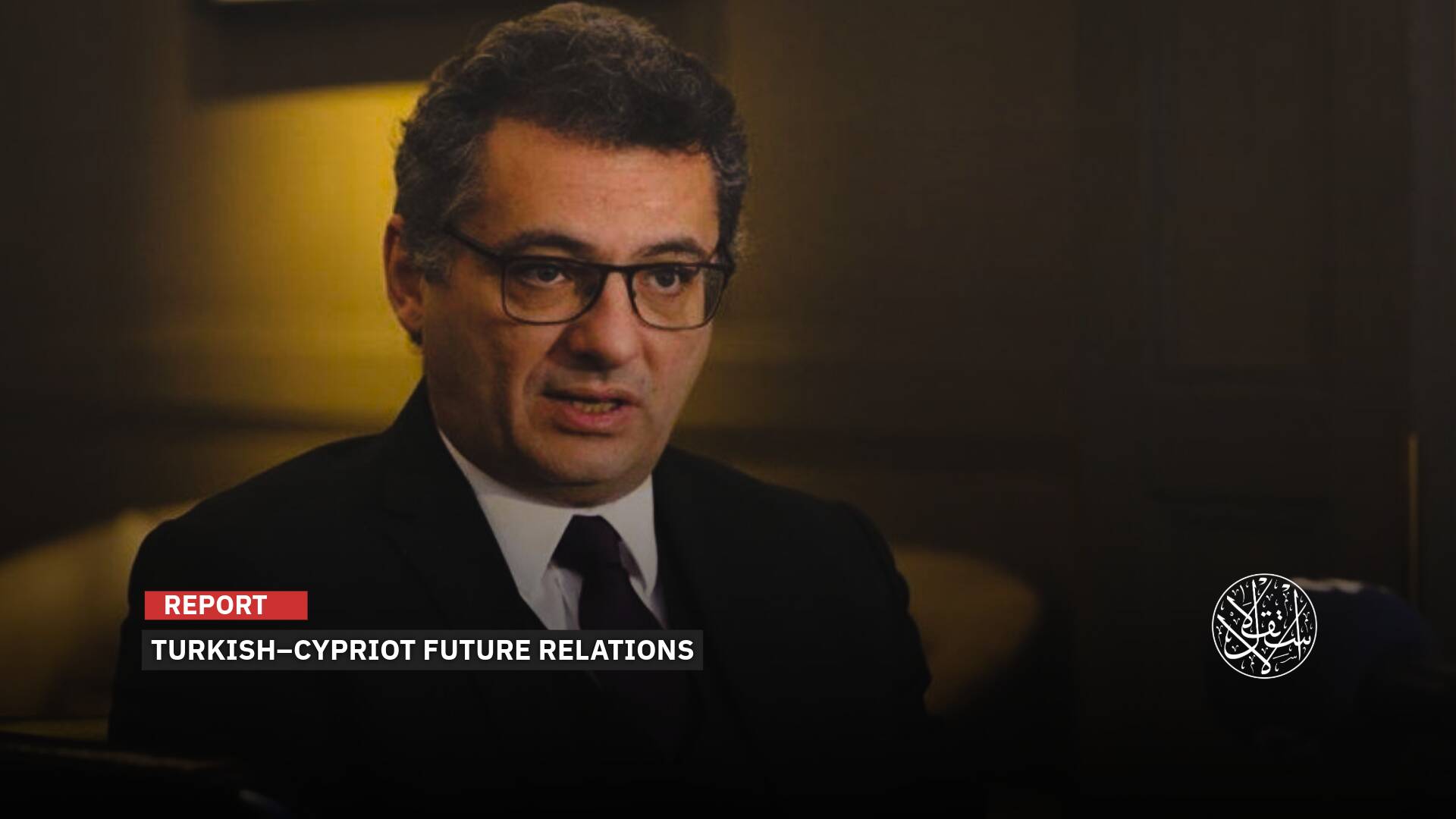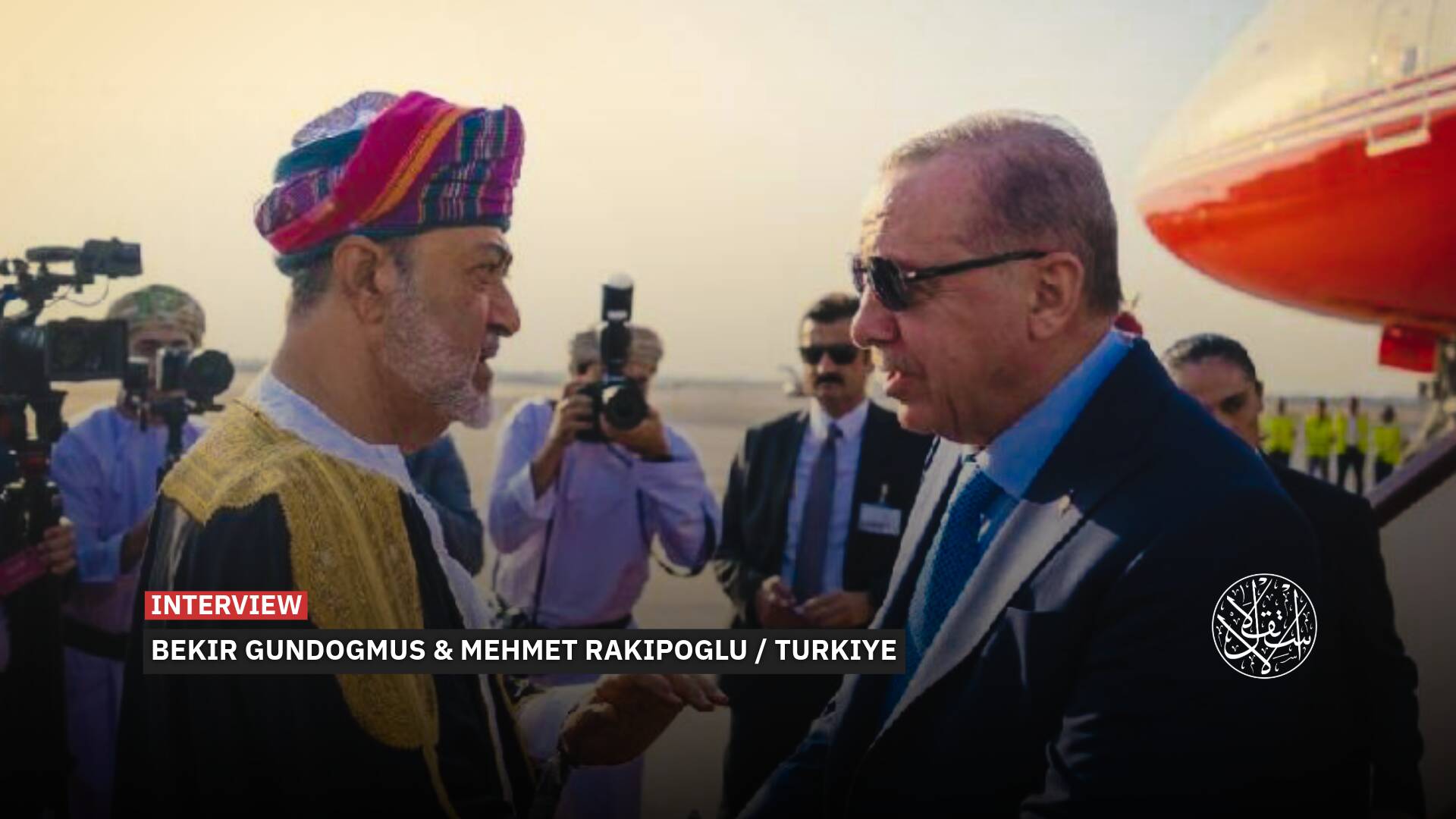The Economy Is a Top Priority: This Is How Erdogan Opens the Doors of a New Turkish Century

The Turkish president recently replaced almost his entire cabinet hours after taking office and brought back former aides such as Mehmet Simsek, who will serve as minister of treasury and finance, while intelligence chief Hakan Fidan, a longtime confidant of Erdogan, was appointed foreign minister.
Simsek was highly regarded by investors when he served as finance minister between 2009 and 2015 and deputy prime minister in charge of the economy until 2018.
It is estimated that Simsek, who is described in the Western press as a friend of the financial market, will gradually change the economic policies implemented in the past two years by returning to the traditional economic policies.
The republic will be celebrating its centennial in October, and so presiding over a new Turkish century became an important campaign slogan for Erdogan. During his inauguration ceremony, Erdogan hailed the start of the Turkish century, a new period of glory for our country.
“We will devote everything we have to serving the Turkish people and healing the effects of the earthquake, and we will reduce the inflation rate, and the interest rate has been reduced,” he said.
He also stressed that Turkiye must have a productive economy, and expressed his pride that his government did not resort to requesting loans from the International Monetary Fund, after it paid off its last debts in 2013.
Technocratic Government
On June 3, 2023, Turkish President Recep Tayyip Erdogan announced the new formation of the government, as only Ministers of Health Fahrettin Koca and Tourism Mehmet Nuri Ersoy continued from the old government, amid expectations that the new government will oversee a major qualitative shift in the economic file.
The new government announced by Erdogan included 15 new ministers, in the largest amendment by which the Turkish president begins his new term, in a move that suggests that he will lead major changes in his previous policies, especially with his selection of ministers with experience and competence.
Erdogan appointed Cevdet Yilmaz as his deputy, Yasar Guler as Minister of Defense, Yilmaz Tunc as Minister of Justice, Omer Bolat as Minister of Trade, and Alparslan Bayraktar as Minister of Energy and Natural Resources.
In addition, he appointed Hakan Fidan, who is described as Erdogan’s secret keeper and shadow man, as foreign minister, which sends messages of calming tensions between Ankara and its regional and international surroundings.
He also appointed Ali Yerlikaya as Minister of the Interior after serving as the governor of Istanbul (on October 27, 2018) and deputy mayor of Istanbul Metropolitan Municipality (on May 7, 2019).
The Turkish president also named Mehmet Simsek as Minister of Treasury and Finance, especially since he held the positions of Minister of Finance and Deputy Prime Minister in Erdogan’s previous governments, thus bringing back one of the supporters of the traditional economy.
It seems that Erdogan is relying heavily on the economic team to address the current situation, starting with his deputy and the Minister of Treasury and Finance, passing through the Trade Minister Omer Bolat, who is a businessman, and the rest of the relevant ministries.
Among the 17 ministers that make up the new government, the ministers of tourism and health maintained their positions, as each of them succeeded in making his own mark. Ersoy earned the state treasury about $12 billion in 2018, and Koca’s role also emerged during the fight against the Coronavirus pandemic and the acceleration of the construction of medical cities.

In turn, the political researcher and analyst Dr. Said el-Haj told Al-Estiklal that Turkiye’s foreign policies under the new government will be closer to stability, while domestic policies—especially the economy—may carry changes.
The researcher pointed out that the appointment of Hakan Fidan in the Ministry of Foreign Affairs may be a clear indication of continuity in previous policies, especially since Fidan was part of the Turkish decision-making and recently led the rapprochement process with a number of regional powers with his prominent role in the Syrian and Libyan files in particular.
“Mehmet Simsek’s appointment as Minister of Finance and Treasury indicates a change in the government’s economic approach, given the man’s approach based on the traditional approach to managing the economy,” according to Dr. el-Haj.
It is likely that Simsek tacitly agreed with President Erdogan on a gradual transitional period, but he carries the idea of change and enjoys credibility in the markets, whether at home or abroad, noting that his appointment to this position reflects Erdogan’s prioritization of the economic challenge in the next few years.
Dr. el-Haj stated that “the new cabinet was devoid of the leading names of the Justice and Development Party, in disagreement with the previous government, explaining that the principle that Erdogan followed in almost all ministries is that the ministers are from within the cadres of the ministry itself, and therefore they can be described as technocrats rather than being partisans.

Economic Policies
It is expected that the new Turkish government will pursue a new path in the economy, especially with the statements of the new Minister of Finance, Mehmet Simsek, upon taking office, that Turkiye has no other choice than to return to a rational ground.
The new Turkish Minister of Treasury and Finance revealed the features of the economic policy that he will implement in the next stage in order to return the economy to the normal path according to traditional rules, as the Financial Times reported on June 4, 2023.
Simsek, who previously held the economy portfolio in earlier periods in Erdogan’s governments before turning to the presidential system in 2018, stressed that “a rules-based, predictable Turkish economy will be the key to achieving the desired prosperity.”
Simsek said the main goal of the new government will be to increase social welfare.
“Transparency, consistency, predictability, and compliance with international norms will be our basic principles in achieving this goal,” Simsek said.
Macro-financial stability in an environment of increasing global challenges and geopolitical tensions will be a priority, he said.
“Establishing fiscal discipline and ensuring price stability for sustainable high growth will be our main goals,” he said.
Simsek, who was highly regarded by financial markets when he served as finance minister and then as deputy prime minister between 2009 and 2018, said that lowering Turkiye’s soaring inflation to single digits will be another priority.
Fiscal policies and structural reforms will support Turkiye’s central bank to help lower inflation, Simsek also said.

In contrast to the current scene, Simsek’s era as Minister of Treasury and Finance between 2009 and 2015 and Deputy Prime Minister in charge of the economy between 2015 and 2018 was characterized by relative stability.
Since Simsek left, the Turkish lira has lost more than 75% of its value against the U.S. dollar amid a series of interest rate cuts.
Simsek is respected by the financial markets because of his experience in many international institutions, including the International Monetary Fund, the World Bank, and Merrill Lynch, in addition to his formulation of the financial policy that helped Turkiye recover strongly from the global crisis.
It is noteworthy that Simsek was nominated as one of the 500 most powerful people in the world by Foreign Policy in 2013 and was awarded Finance Minister of the Year for Emerging Economies in Europe 2013 by Emerging Markets magazine.
In turn, the Turkish economist, Fatih Ozatay, said that “Simsek’s assumption of the Ministry of Treasury and Finance will generate positive winds at first, but a reasonable return must be achieved in a short time on issues such as anti-inflation, the exchange rate, growth, and the current account deficit.”
Bloomberg also reported that “Turkish investors are betting that the return of the former Wall Street banker, referring to Simsek, heralds a shift to more traditional economic policies in the country.”
The agency indicated that “strategists are still skeptical about the economic prospects in the medium term, although they believe that the appointment of Simsek will give a boost to the market.”

Governor of the Central Bank
In the same context, sources told Reuters that the new director of the Turkish economy, Mehmet Simsek, will request the appointment of Dr. Hafize Gaye Erkan, who has experience in traditional monetary policies, as governor of Turkiye’s central bank instead of Sahap Kavcioglu.
Gaye Erkan, who lives on the east coast of the United States near New York, is on her way to coming to Turkiye today.
Before her official appointment, Gaye Erkan will hold a bilateral meeting with President Erdogan at the Presidential Complex in Ankara.
It is expected that Gaye Erkan will be appointed as the governor of the central bank after the meeting scheduled to be held within the next two days at the latest.
With the appointment of Gaye Erkan, this will be the first time that a woman holds the position of governor of Turkiye’s central bank.
Hafize Gaye Erkan, who graduated from Bogazici University with first place, was selected as an honor student at Princeton University in the United States and received the highest scholarship.
Gaye Erkan began her career in the United States in 2005 at Goldman Sachs as a managing director.
She then worked as former co-CEO at First Republic Bank, based in San Francisco in 2014, and later was promoted to chairman and board member of the bank.
It was so successful at First Republic Bank that it increased the company’s assets tenfold.
When she announced her decision to leave the bank, Gaye Erkan made headlines in the U.S., while the bank’s shares subsequently fell sharply.

His appointment is aimed at tackling Turkiye’s cost-of-living crisis and could set the stage for interest rate hikes in the coming months, which could mark a turnaround from Erdogan’s long-standing policy of slashing rates despite soaring inflation.
Turkiye’s annual consumer price inflation hit a 24-year peak beyond 85% last year and stood at 44% in April.
The lira hit new all-time lows beyond 21 to the dollar after the May 28 run-off vote in the election. It lost more than 90% of its value in the last decade after a series of crashes.
Sources
- Our nation will crown the second century of our Republic with the Century of Türkiye
- President Erdoğan unveils his cabinet
- Turkey’s new finance minister pledges return to ‘rational’ economic policy
- Turkish Markets Hope Simsek Can Revive ‘Rational’ Policies
- Erdogan considering Erkan as Turkey cenrtal bank chief, sources say







